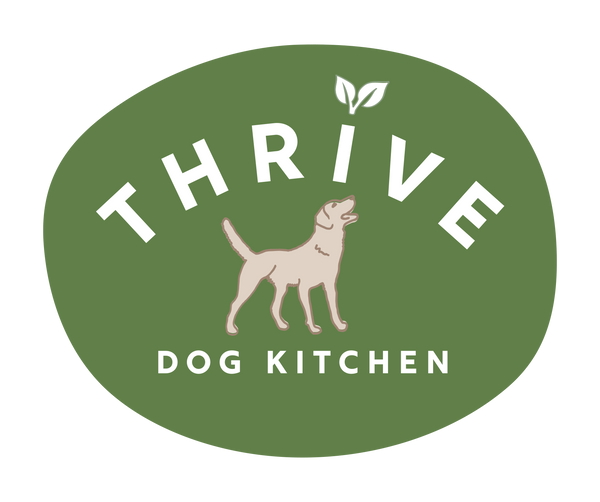
Colostrum for Dogs: Miracle Supplement or Just Hype?
Share
What Is Colostrum?
Colostrum is the first milk produced by mammals after giving birth, packed with proteins, fats, vitamins (A, D, E, K, and B vitamins), and minerals like calcium, iron, and zinc (source). This nutrient-dense fluid is critical for newborns, providing immune factors and growth compounds essential for early development (source).
Why Colostrum Is Critical for Newborn Puppies
For puppies, colostrum offers vital immune protection and supports digestive health during their most vulnerable stage. It delivers antibodies (immunoglobulins) that help protect against infections, while also supplying energy and nutrients needed for rapid growth (source). Puppies unable to nurse from their mothers are at higher risk for infections and poor development without colostrum.
Why Are Colostrum Supplements Trending for Dogs?
Interest in colostrum supplements for dogs has surged, driven by claims of supporting immunity, gut health, allergy relief, and more (source). Influencers and anecdotal reports have popularised its use, but it’s important to examine what scientific research actually supports.
How Is Colostrum Collected and What Affects Its Quality?
Colostrum quality varies based on species, breed, maternal nutrition, and timing of collection. The most beneficial colostrum is collected within the first 24–72 hours after birth (source). Ethical sourcing is crucial to ensure calves receive adequate colostrum before any is diverted for supplements. Purity and processing also impact supplement quality—products with fillers or additives may be less effective (source).
What Does the Research Say?
Potential Benefits for Dogs
- Puppies: Supplementation with bovine colostrum has been shown to improve fecal quality and reduce diarrhoea in recently weaned puppies, particularly during stressful periods like dietary or environmental changes (source).
- Adult Dogs: Studies indicate that colostrum supplementation can enhance immune response, decrease susceptibility to infections, and increase gut microbiome diversity (source).
- Other Benefits: Colostrum may help with allergy symptoms, support gut barrier function, and provide antimicrobial and anti-inflammatory effects, potentially aiding in conditions like leaky gut, IBD, and periodontal disease.
Limitations of Current Research
Many studies on colostrum supplements in dogs involve small sample sizes, which limits the reliability and generalisability of their findings. For example, a study on fecal quality in puppies involved fewer than 40 dogs(source). Most readers may not consider sample size when reviewing research, but small studies can produce results that may not reflect outcomes in the broader dog population. Additionally, there is a lack of long-term safety and efficacy data, especially in healthy adult dogs.
Pros and Cons of Colostrum Supplements for Dogs
Pros |
Cons |
|
May improve fecal quality and reduce diarrhoea in puppies |
Most studies use small sample sizes, limiting confidence in results |
|
May help modulate immune response and support gut health |
Wide variation in colostrum quality between animals and even between teats |
|
Contains bioactive compounds that may help with allergies |
Supplements are expensive and not rigorously regulated |
|
Generally well-tolerated by dogs without dairy allergies |
Not all products are pure; some contain fillers or are of questionable quality |
|
May offer antimicrobial and anti-inflammatory benefits |
Lack of long-term safety and efficacy studies in dogs |
|
Easy to administer as a powder |
Possible risk of allergic reactions in sensitive dogs |
|
Potentially beneficial for dogs with weakened immune systems |
Ethical concerns regarding sourcing and calf welfare |
|
Some evidence for reducing upper respiratory tract infections |
More research needed, especially in adult and healthy dogs |
How to Choose a Quality Colostrum Supplement
- Select products from reputable, ethical sources.
- Look for third-party testing for purity and potency.
- Avoid supplements with fillers or artificial additives.
- Consult your veterinarian before starting any new supplement, especially if your dog has allergies or health issues.
Should You Give Colostrum to Your Dog?
While colostrum shows promise for supporting immune and digestive health—especially in puppies and dogs with specific health needs—more robust research is necessary. Supplements can be costly, and visible improvements may not always be apparent. Always weigh the potential benefits against the limitations and consult your veterinarian or canine nutritionist for guidance.
Key Questions to Ask Before Supplementing
- Why am I considering colostrum for my dog?
- Can I achieve these benefits through a balanced diet?
- How will I measure if it’s working?
- Am I choosing a high-quality, ethical product?
Is Colostrum Right for Your Dog?
Colostrum offers several potential benefits for canine health, particularly for puppies and dogs with specific immune or digestive challenges. However, current research is limited by small sample sizes and a lack of long-term data. If you’re considering colostrum for your dog, consult your veterinarian and choose high-quality, ethically sourced products.
Join the Conversation & Stay Informed!
Have you tried colostrum supplements for your dog, or are you considering it? Share your experiences and questions in the comments below—I love hearing from fellow dog lovers!
Want more science-backed pet health tips, exclusive offers, and the latest updates delivered straight to your inbox?
Subscribe to our newsletter today and become part of our community!
